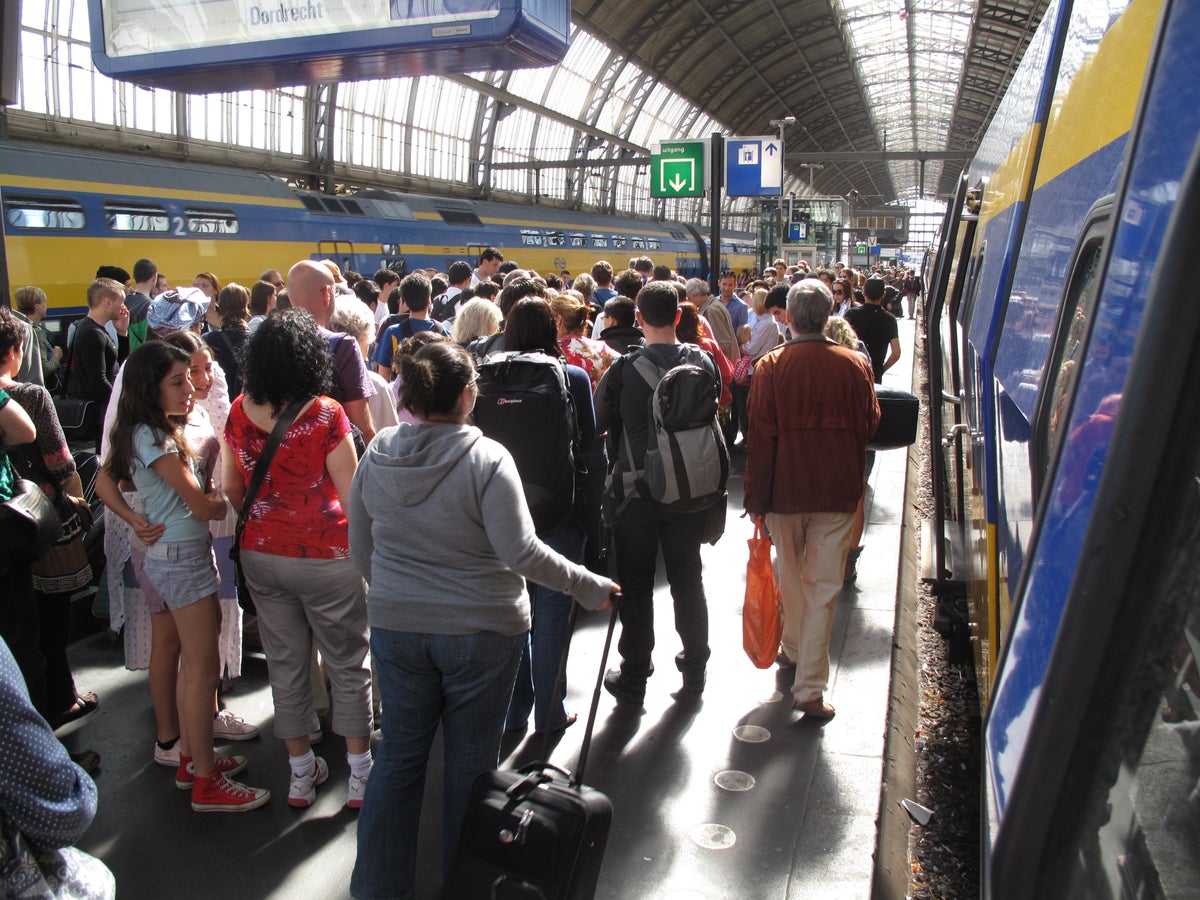
On the railways of Britain the warring factions in the tangle of industrial disputes are still about as far apart as Penzance and Thurso.
So after the first weekend for weeks with no rail strikes, I fear more walkouts are on the way. But the UK is far from a monopoly provider of toxic industrial relations.
“After thorough analysis we have decided that there are no viable option to operate a timetable in a responsible way” – that was the announcement from Nederlandse Spoorwegen (NS, or Dutch Railways) on Tuesday 30 August.
The rail unions – FNV Spoor, VVMC and CNV – have been calling strikes in different parts of the Netherlands all week. Tuesday’s affected the heart of the network, causing a nationwide shutdown (apart from a shuttle service between Schiphol airport and Amsterdam Central).
“We are extremely sorry that passengers are experiencing so much inconvenience,” NS said.
As in the UK, the dispute is fundamentally about pay at a time of high inflation and reduced rail revenue. And it comes at a time when the train operator is short of qualified staff in key roles.
“In spite of all the efforts to solve the shortage of colleagues, the shortage remains considerable.”
So when the strikes are over, normal service will not resume. Instead, Dutch Railways is cutting its schedules drastically.
“In the fall and for the year 2023, due to the expected staff shortage, we are adjusting the timetable to make it more executable.
“Obviously, we would prefer not to do this, but the situation leaves us no alternative.“
From 5 September, routes with six trains an hour will reduce to four. At weekends and in the evenings, trains will run every half hour, instead of every 15 minutes. Annoying for Dutch travellers and international visitors who will have to wait for longer and put up with more crowded trains.
Yet one of Europe’s top rail experts compares the NS move favourably with the British equivalent. At present Avanti West Coast lurching as best it can from one emergency timetable to the next due to chronic staff shortage, with no certainty yet which trains will run on (for example) 10 and 11 September.
Nicky Gardner, co-author of Europe by Rail, tells me Dutch Railways has “a widespread issue of staff shortages due to illness” – which sounds similar to Avanti’s ailment.
Accordingly, she says: “Shifting to a less intense timetable, one where the frequency on the densest routes is thinned out, makes perfect sense. The news story here, one which I suspect is not generally known in Britain, is how seamlessly NS changes from one timetable mode to another.
“The Netherlands handles a shift in timetable mode (eg. from ‘normal’ to a less intensive but still regular interval service) better than any other country I know.”
The system was created in the wake of a disruptive snowstorm in February 2012, which caused chaos for days. In the aftermath, NS applied brains and computing power to devise a series of alternative timetables that can be invoked at very short notice – “rather than make on-the-fly adjustments, which really often end up causing more probs further down the line - or later in the day”, says Nicky.
“These alternative timetable modes, such as the upcoming shift to a slightly less intense service, really can be invoked at just a couple of hours notice, and that happens with storms and snow. But in practice NS try, as they are doing now, to give more notice.
“The management decision to shift to a different timetable mode invokes a really complex but entirely automated process of changing crew rosters and overtime hours, rolling stock rosters and cleaning and maintenance schedules. It even generates notices to the Dutch media giving appropriate information.”
For the passenger, the impact is lessened compared with intercity services in the UK. NS runs high-frequency trains on a dense network, so it can fillet the normal service more easily than Avanti.
“It is essentially a hop-on-and-ride service,” says Nicky. “There are no seat reservations on domestic trains, so they don’t have the issues that arise in Britain, with many people having pre-booked with tickets tied to a specific train.”
Perhaps I am oversimplifying, but I like to think that on the top floor of the Dutch Railway HQ, towering over Utrecht Centraal, there is a big button marked “reduce timetable” – and an equally impressive one labelled “restore timetable”.
Nicky Gardner indulges me by kind-of confirming this: “The ease with which NS shifts modes brings benefits when they change back to the normal schedules – as they will eventually.”






